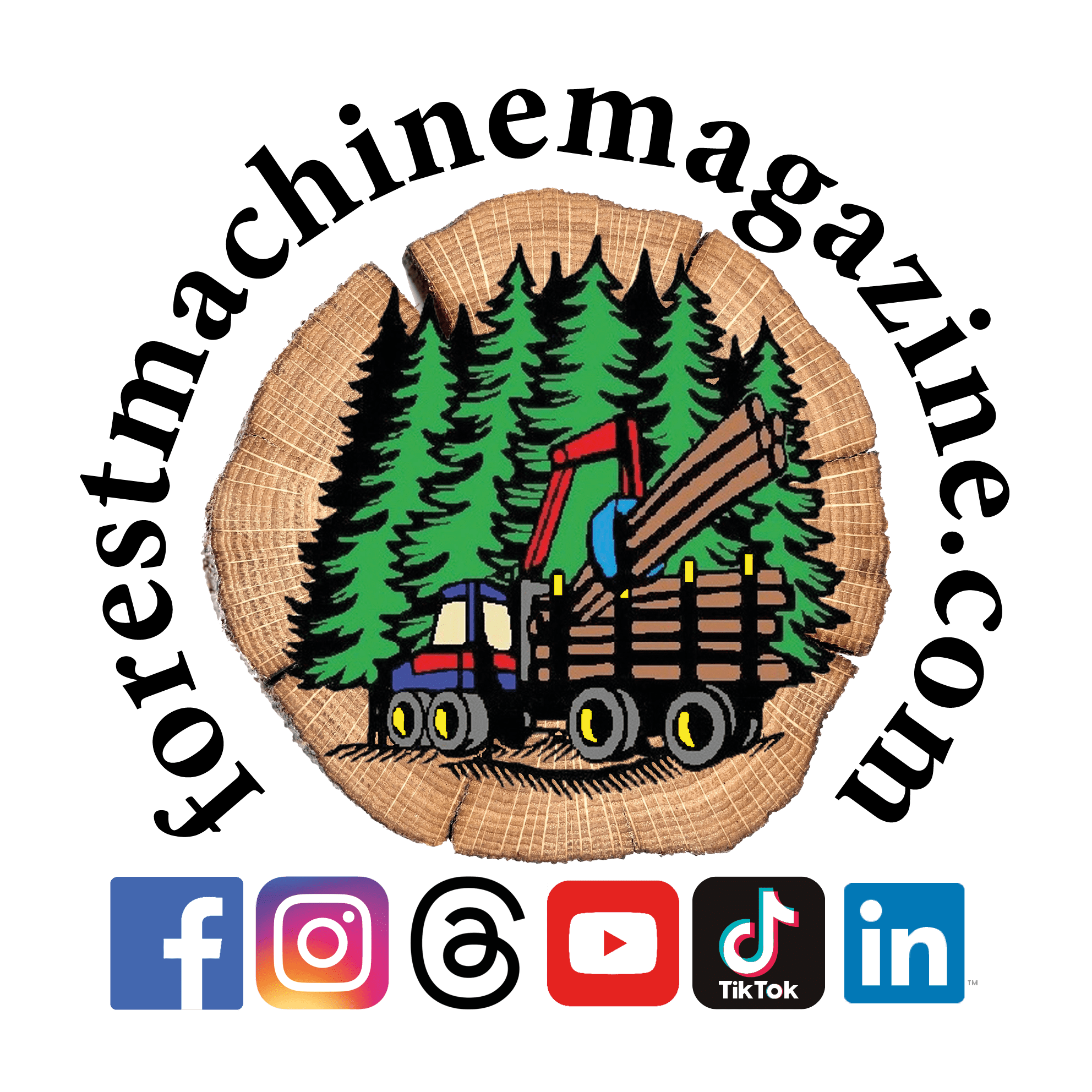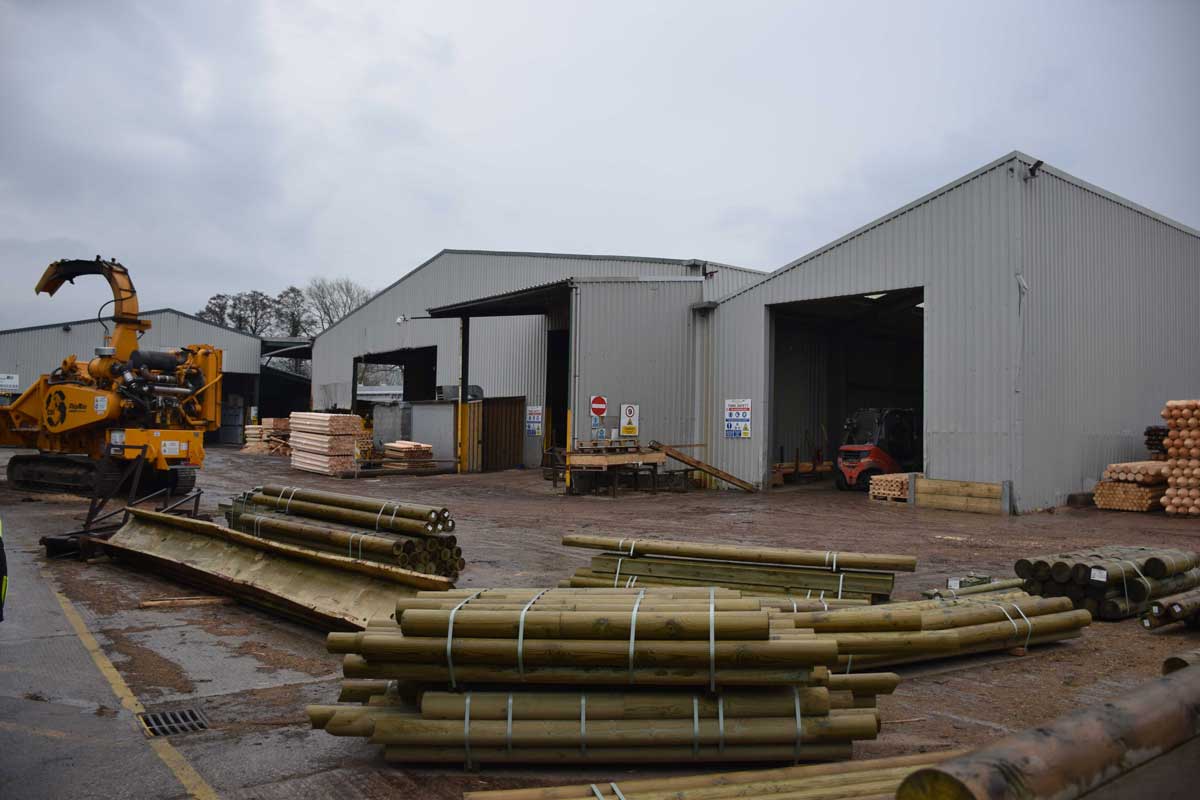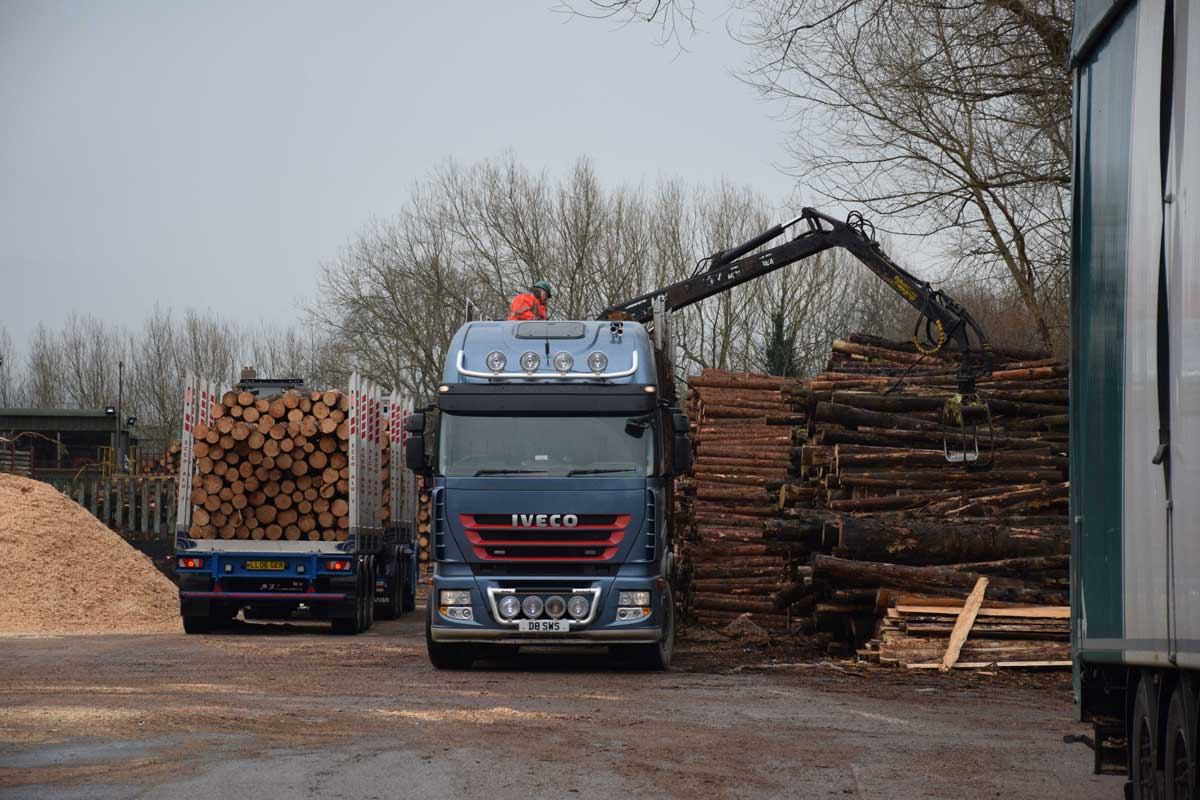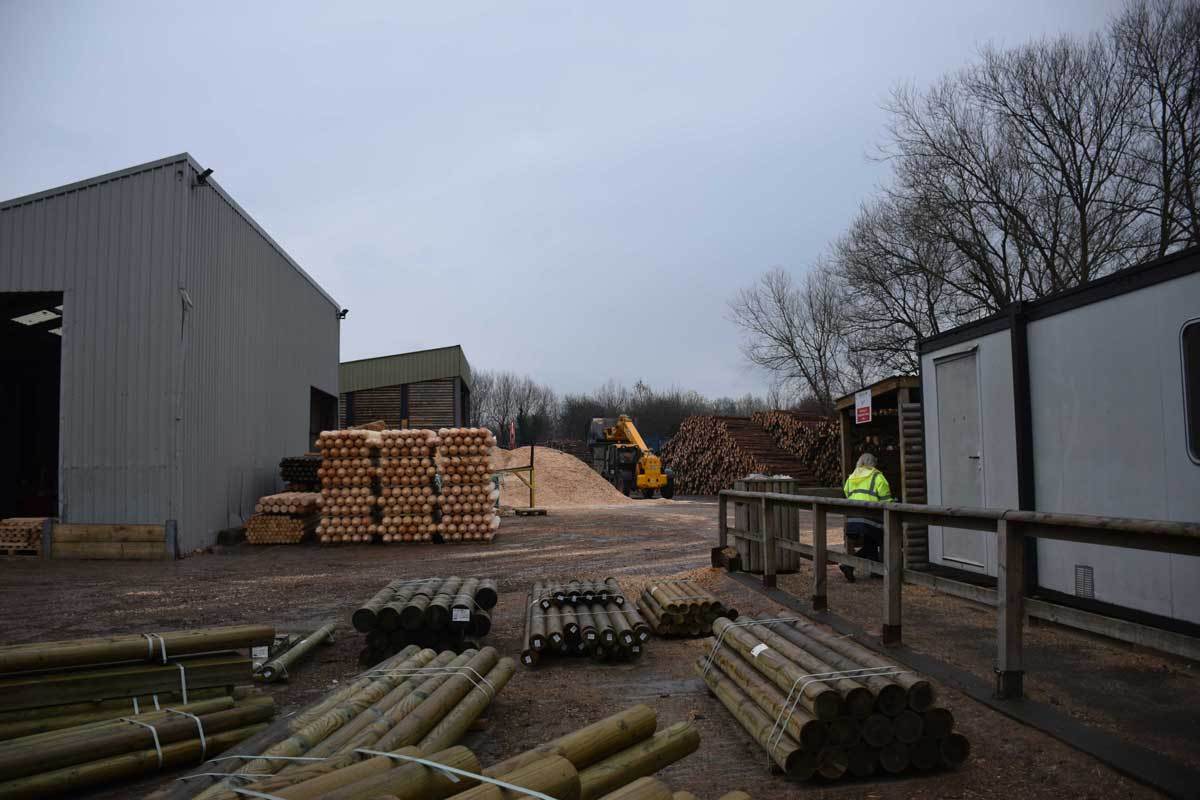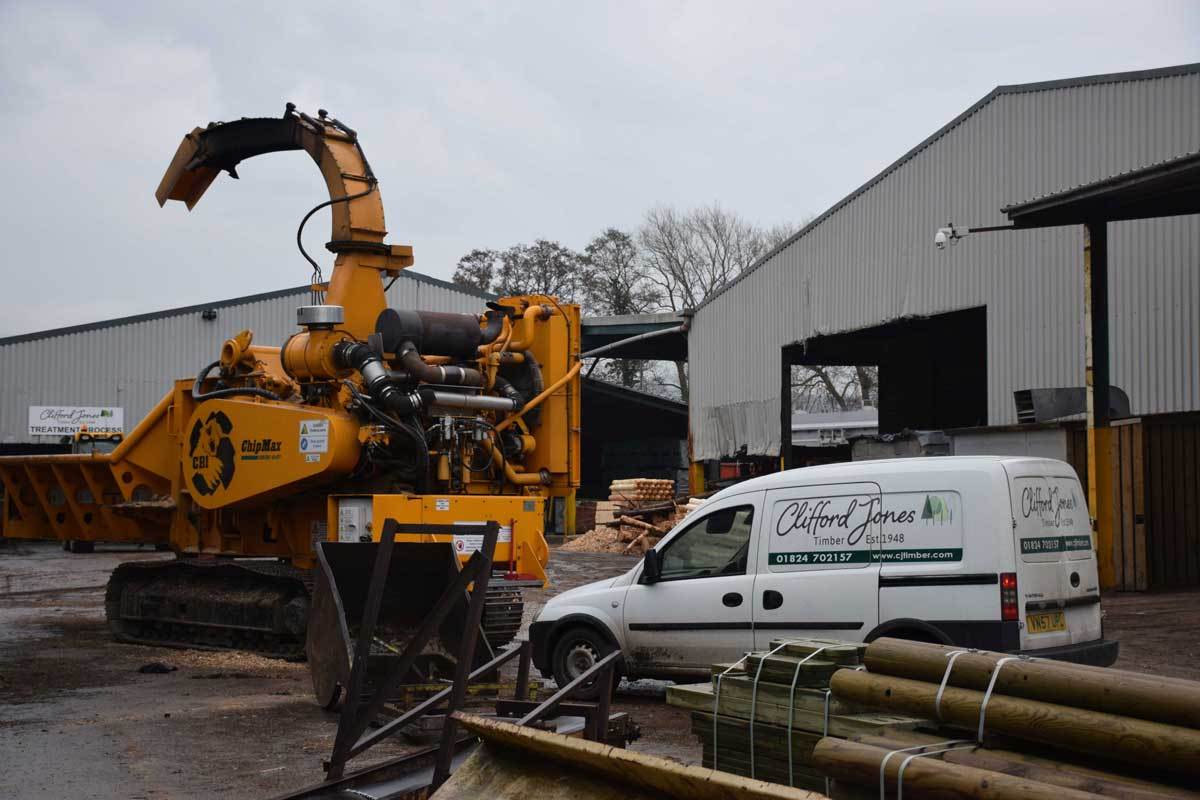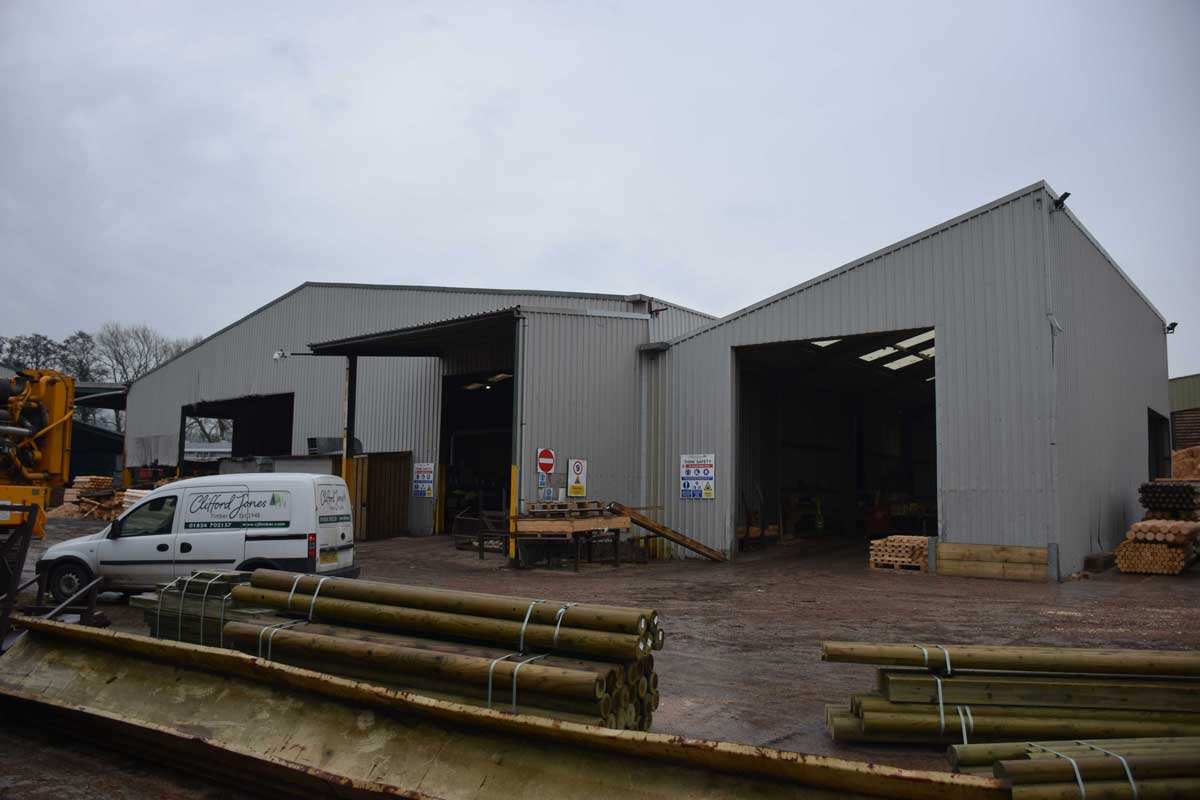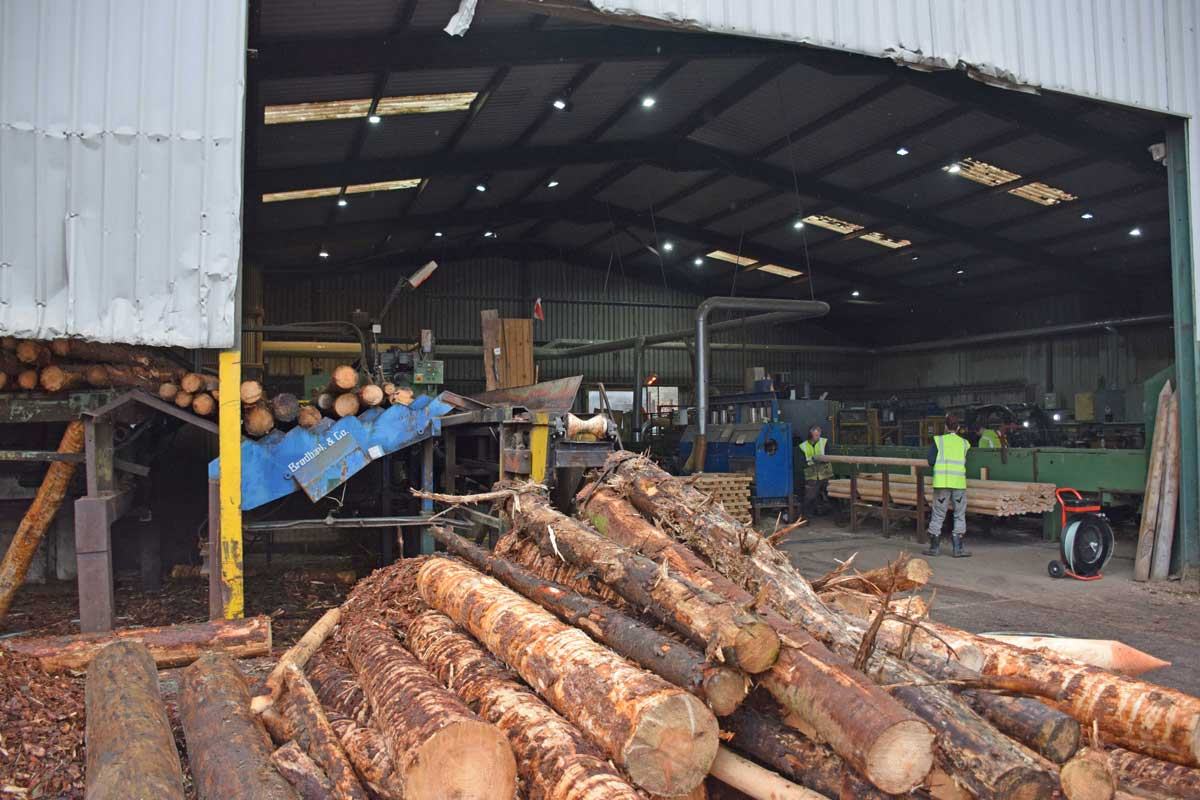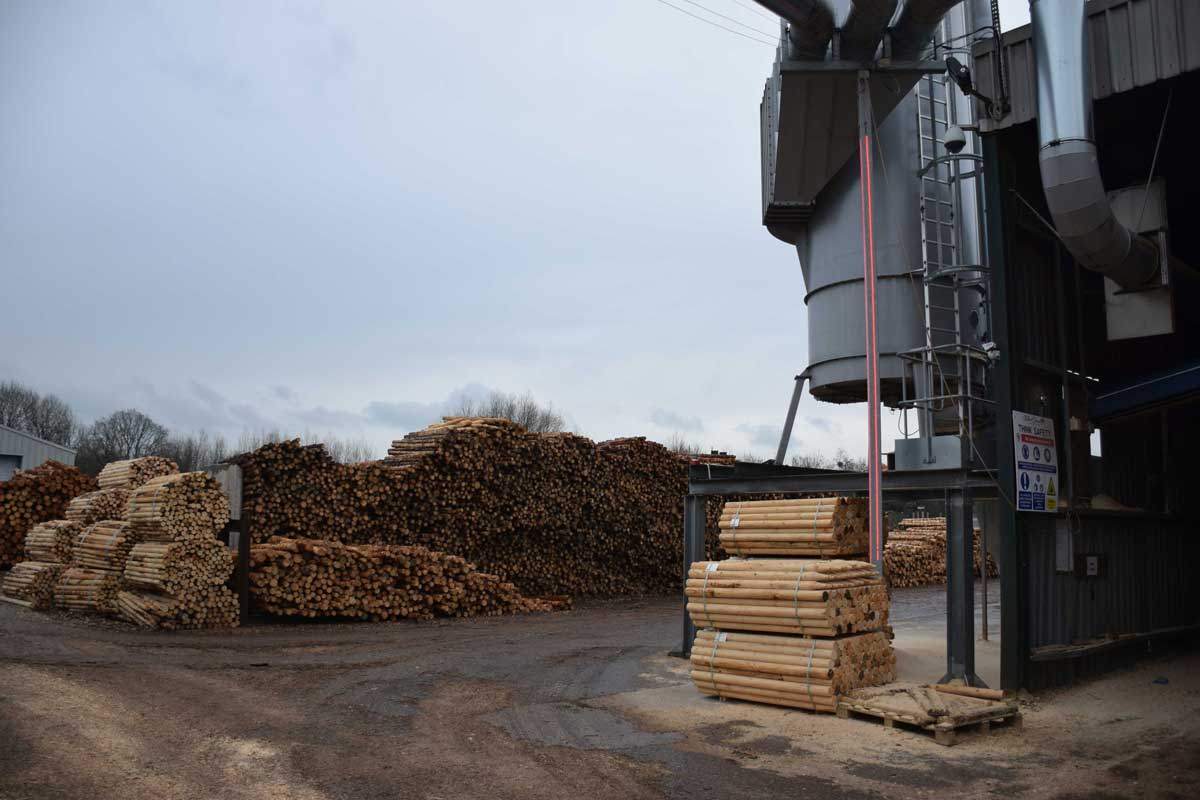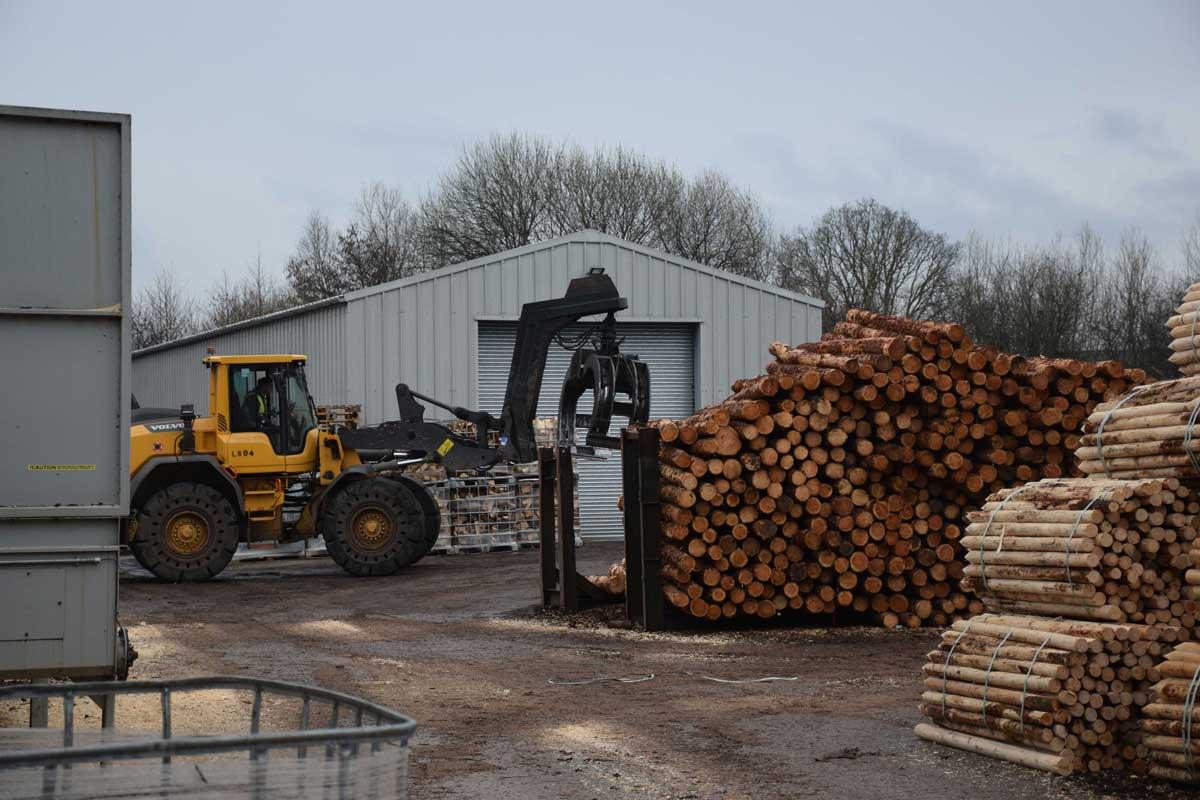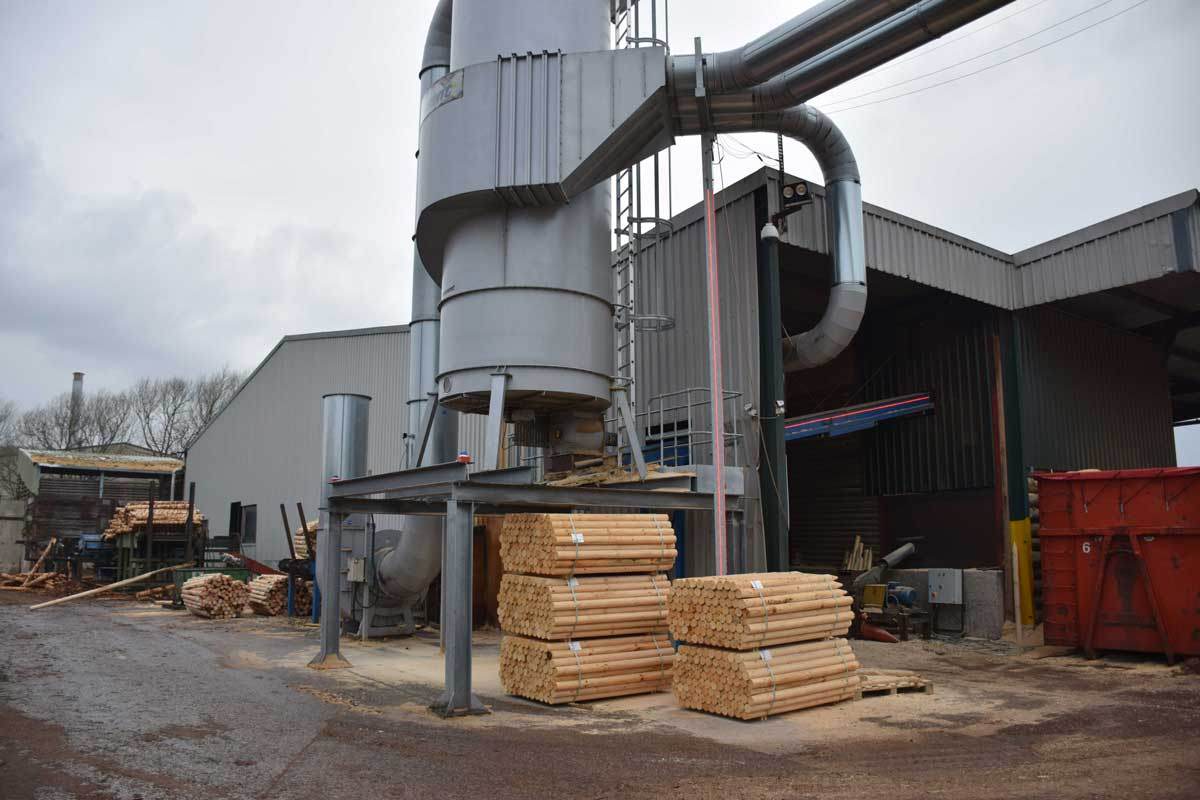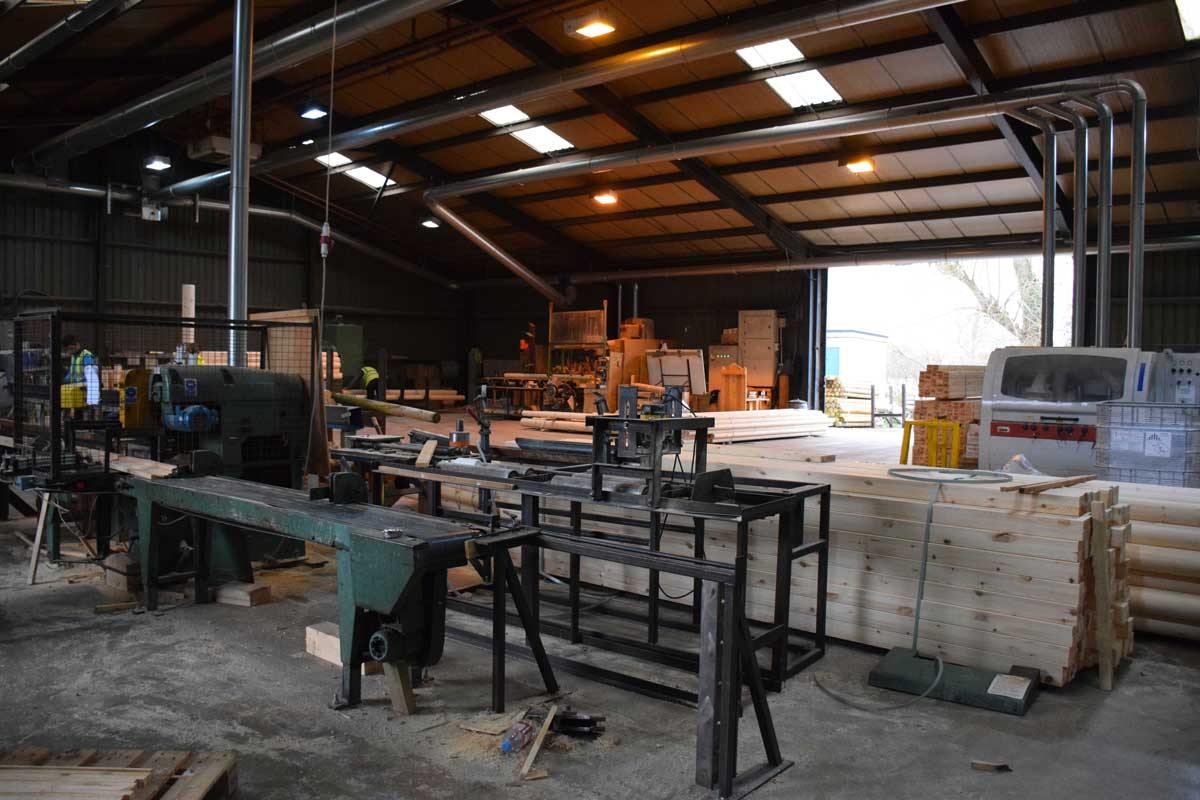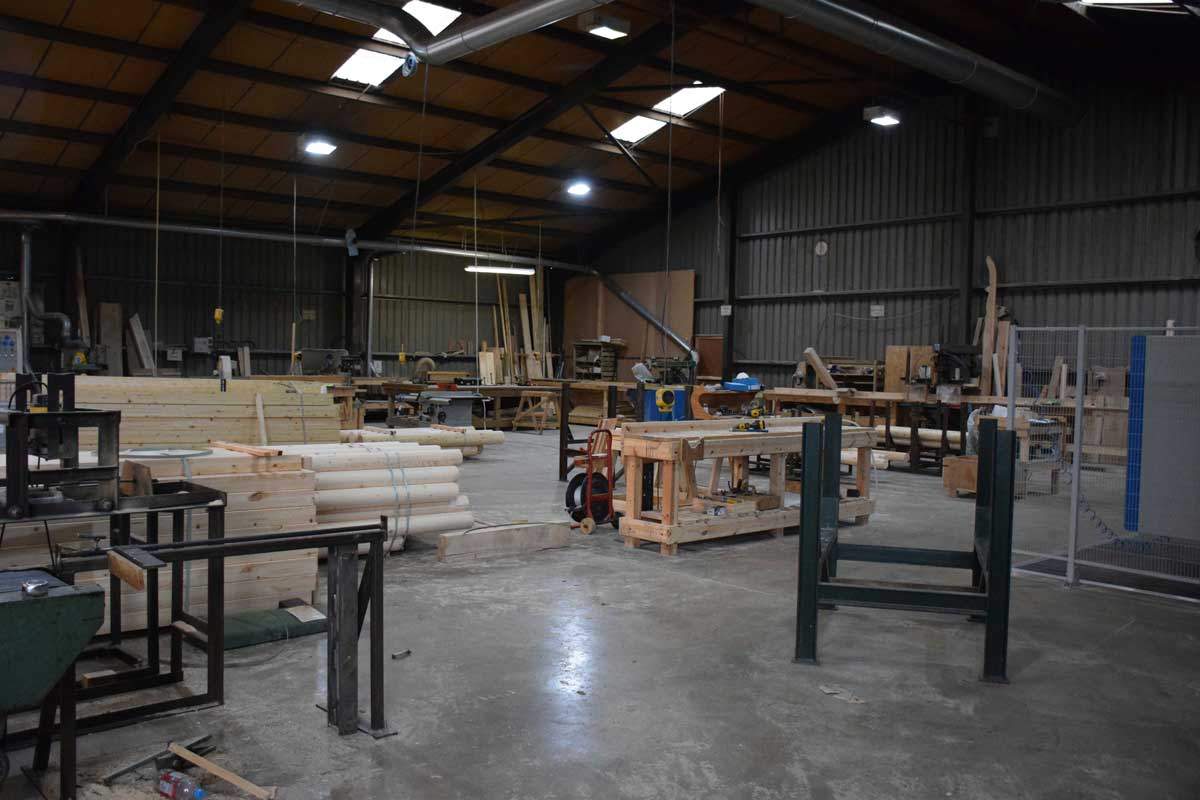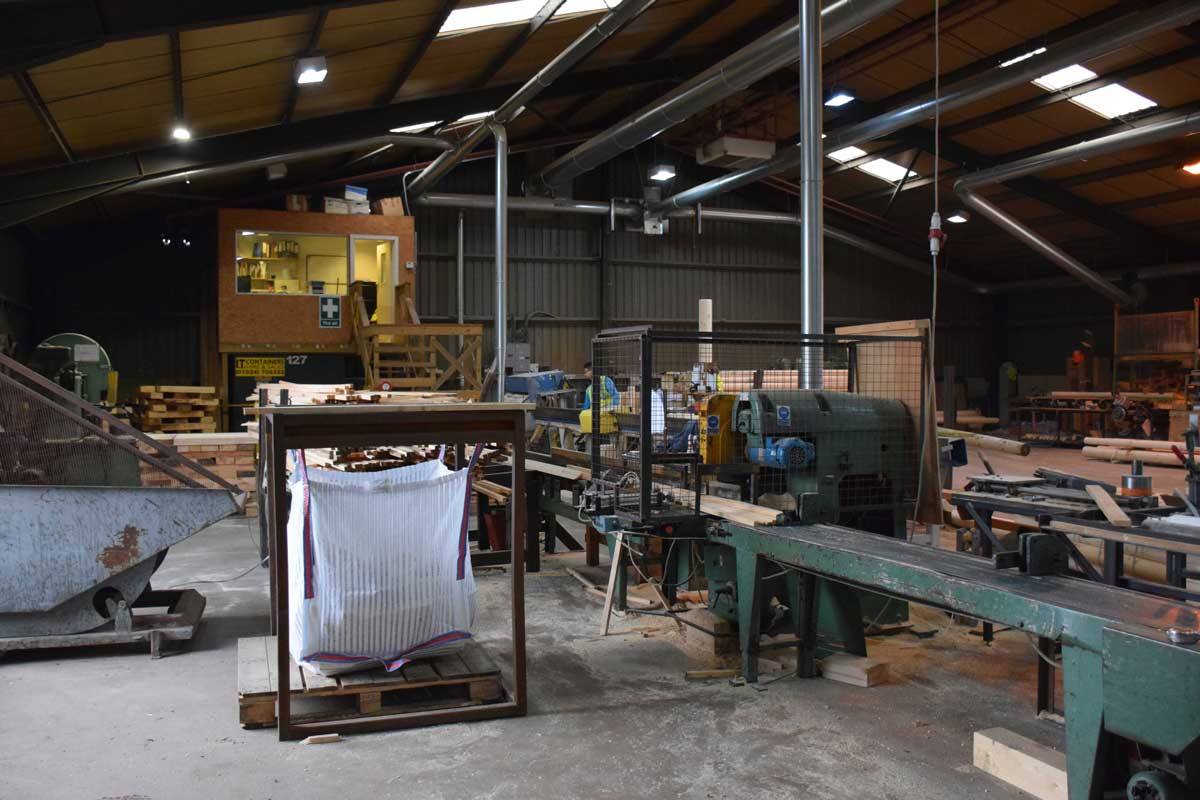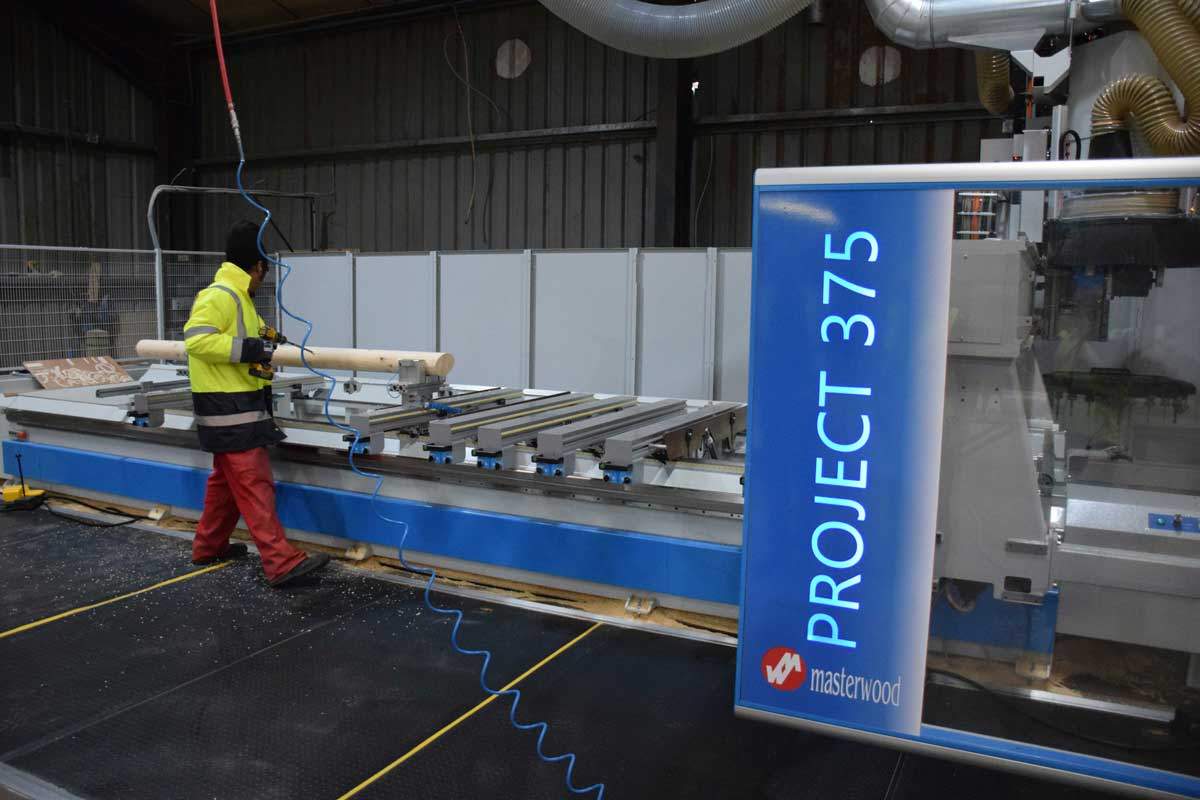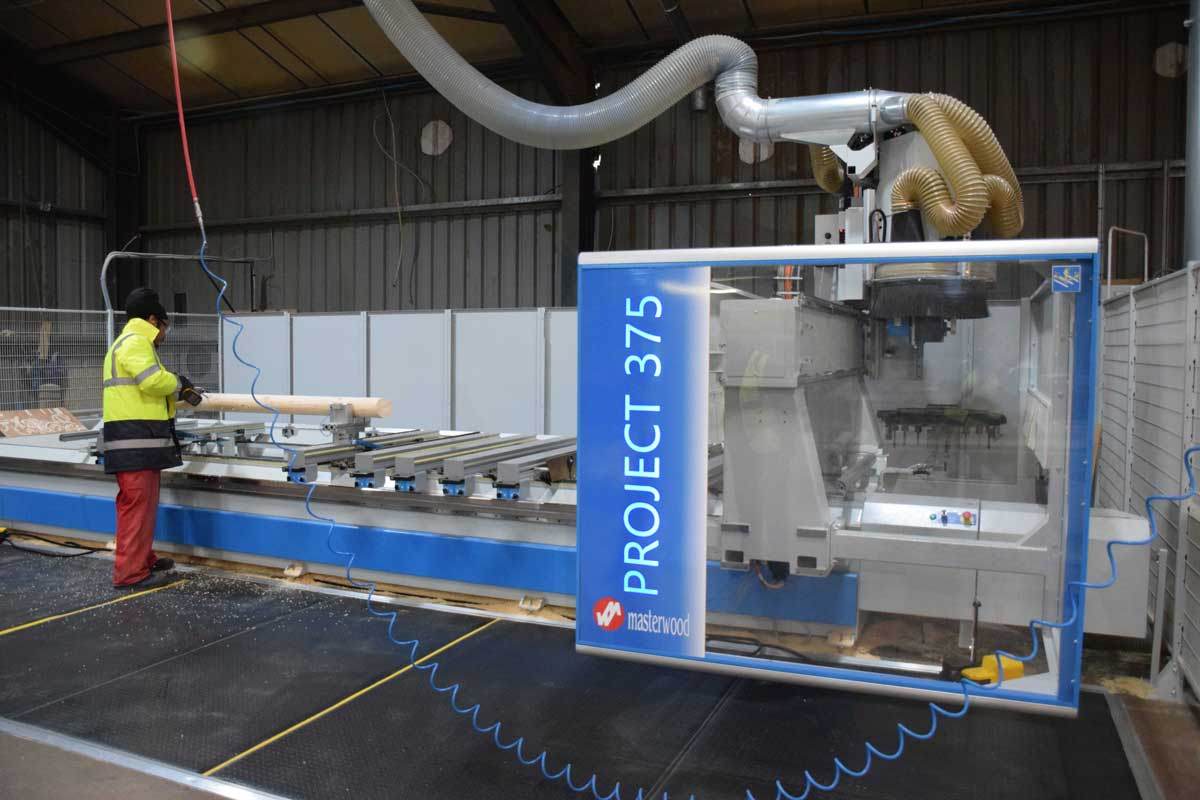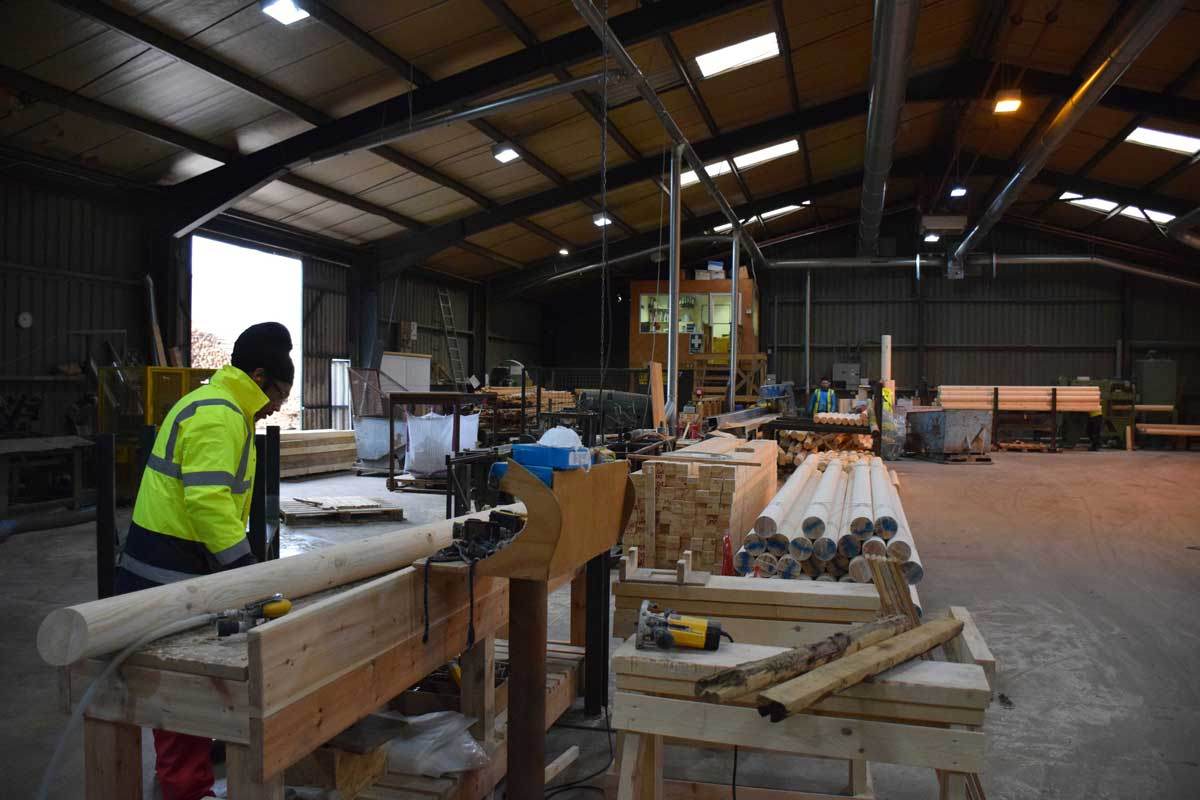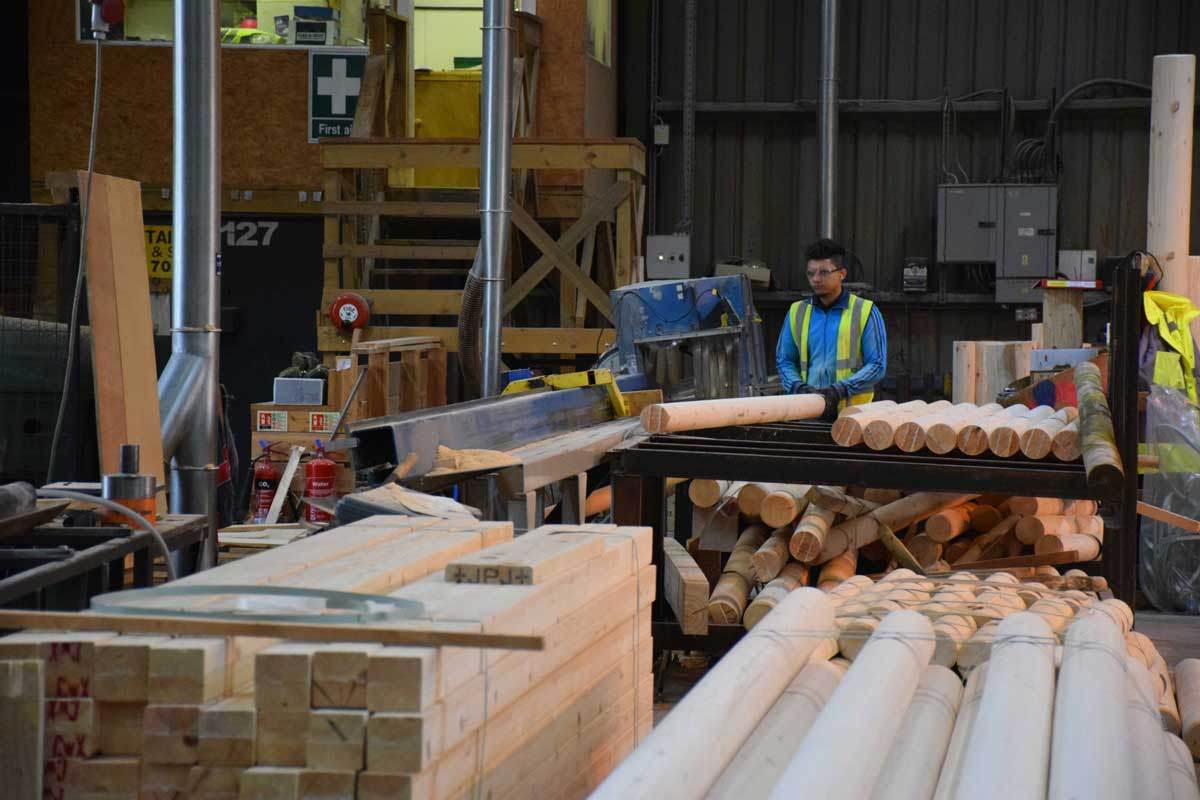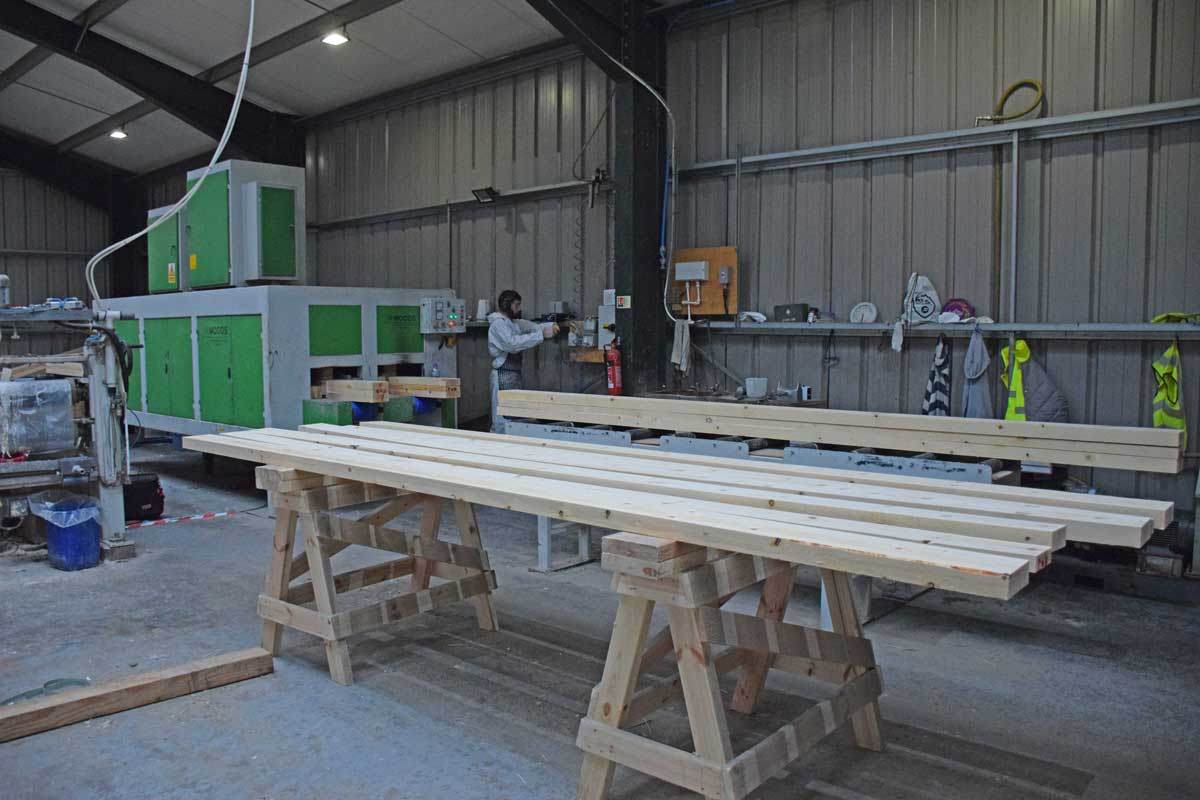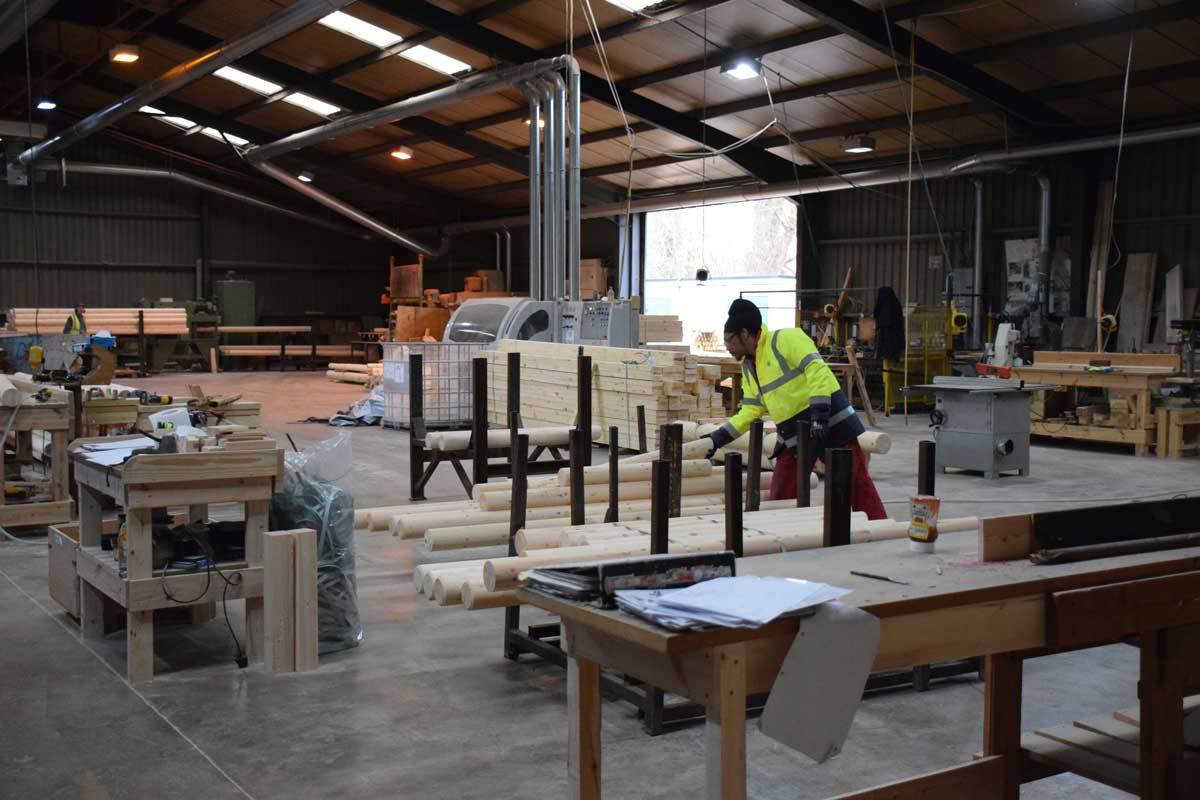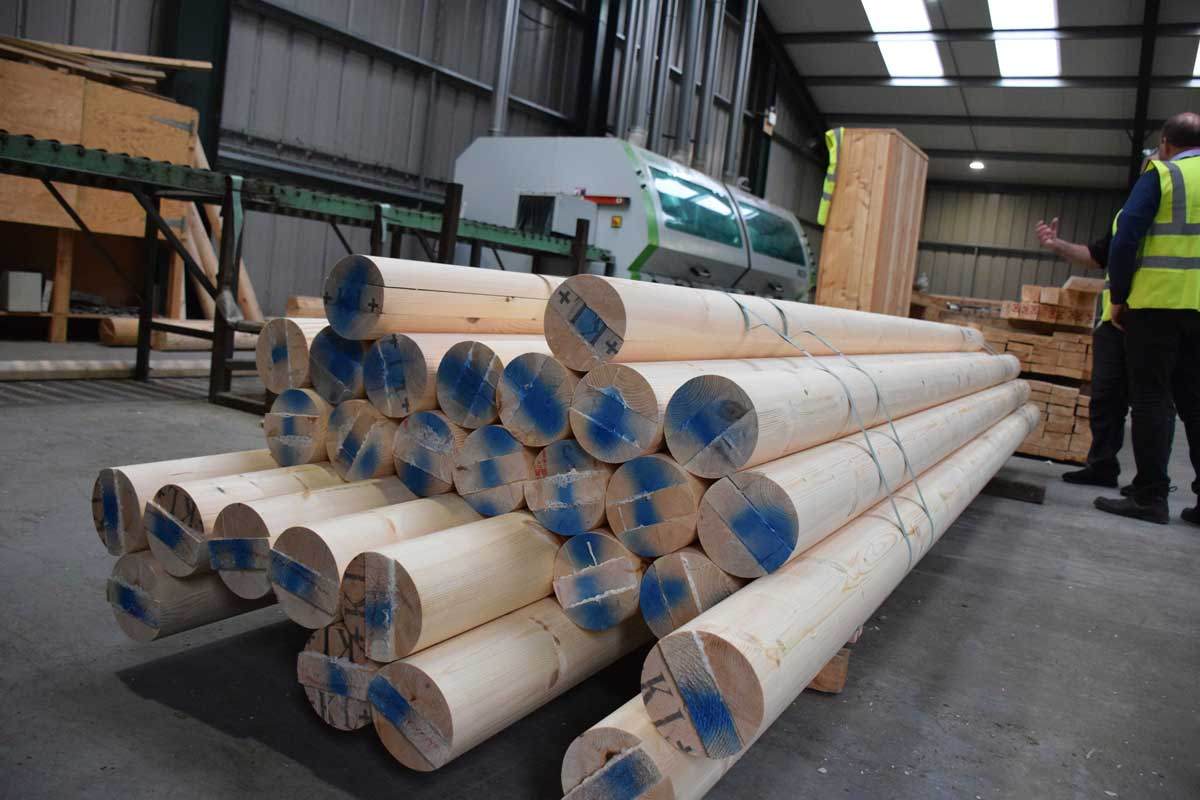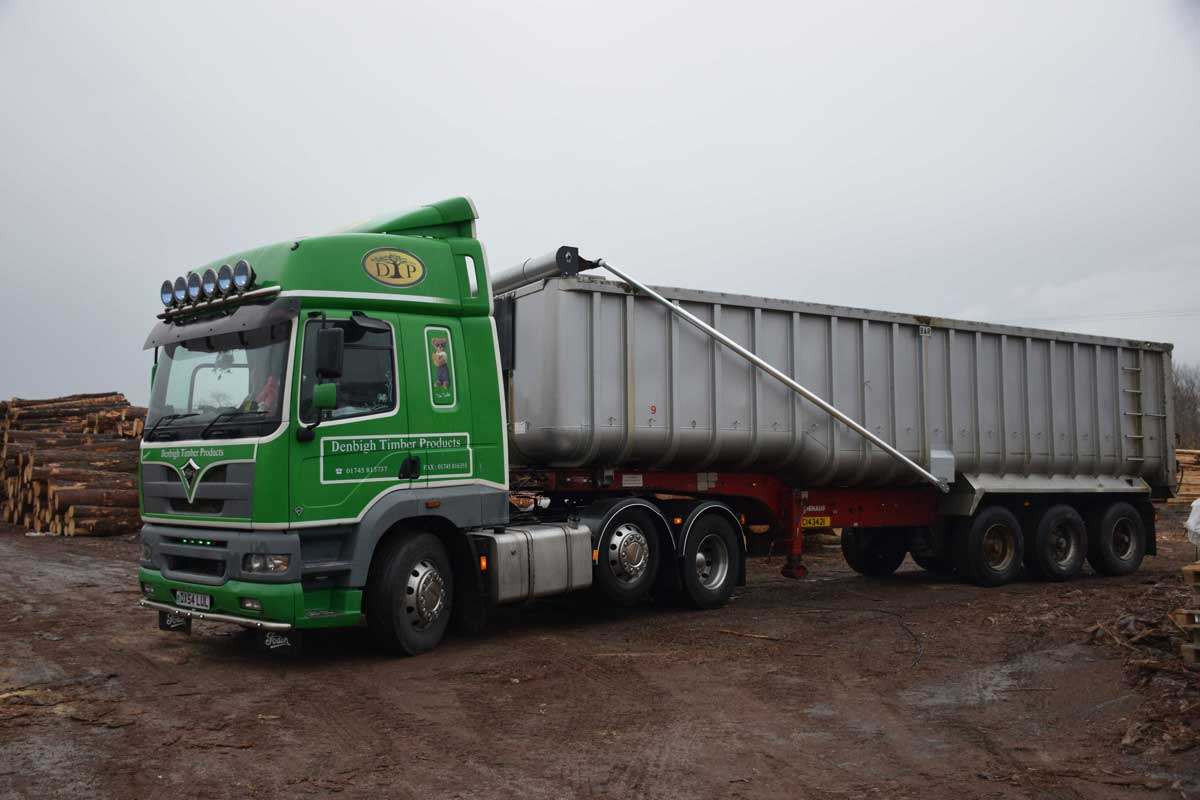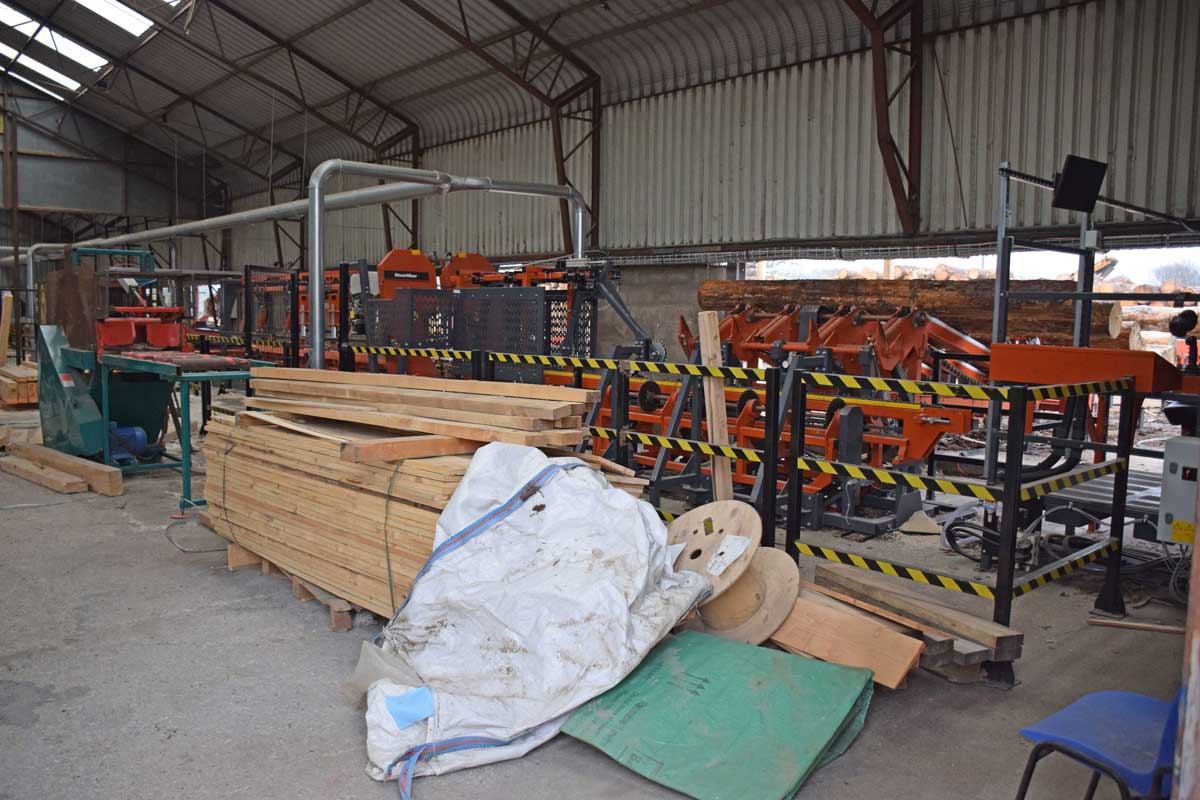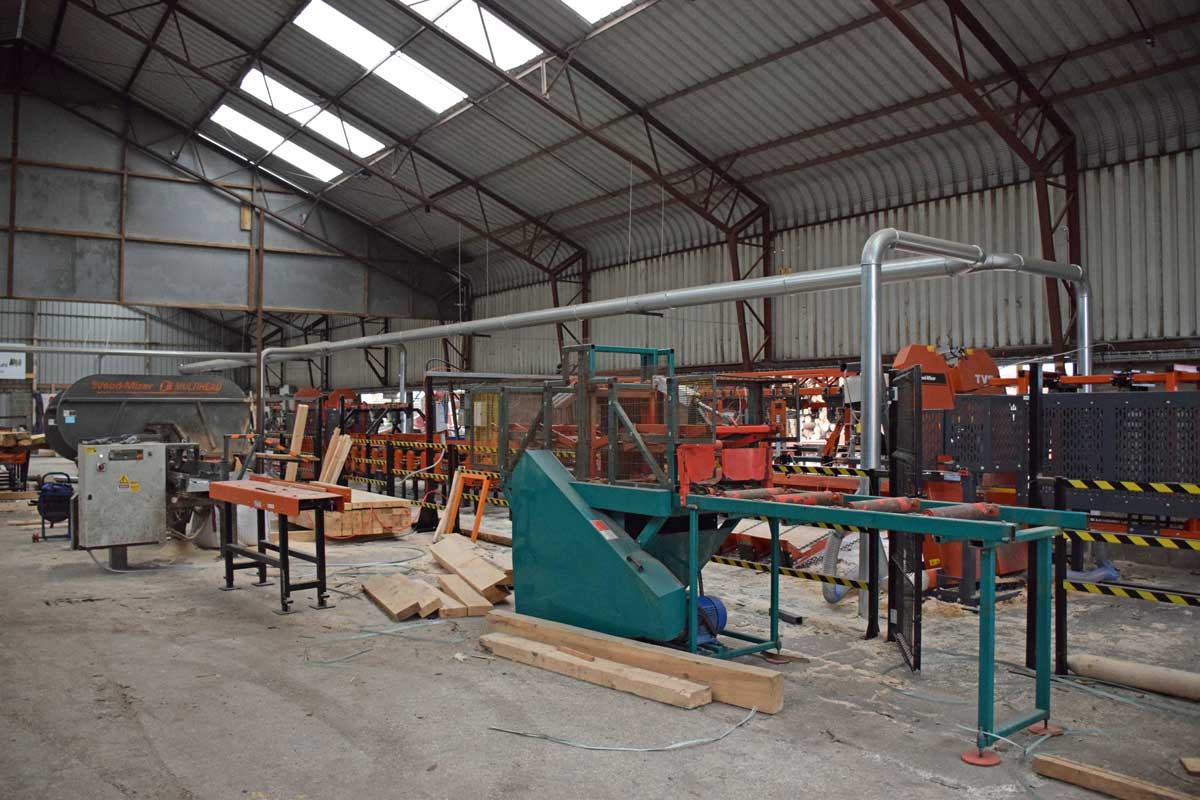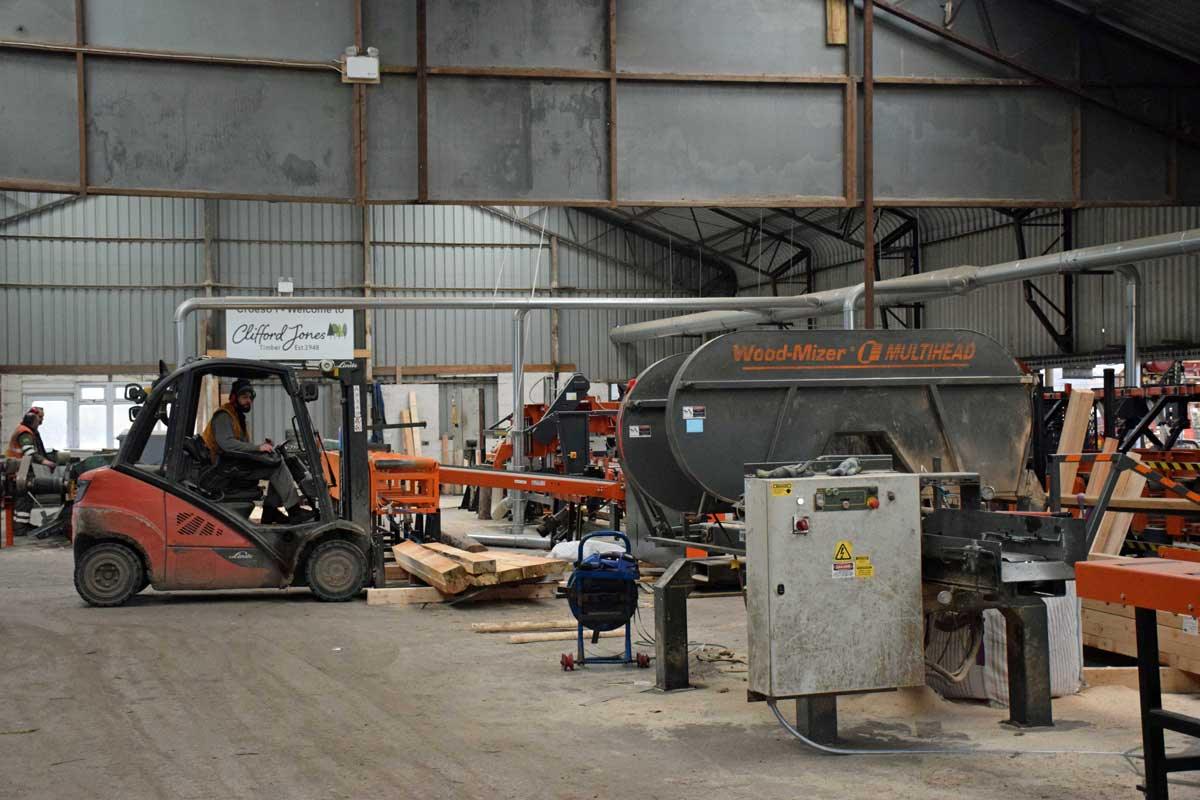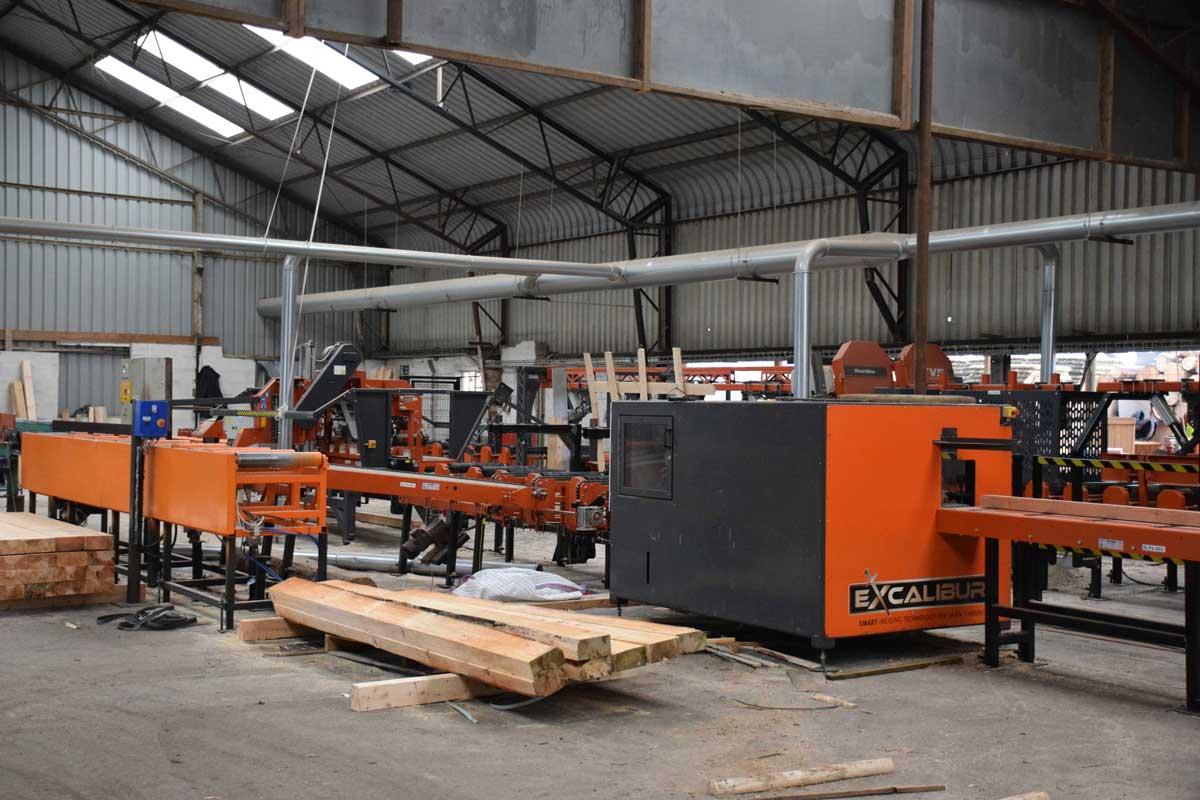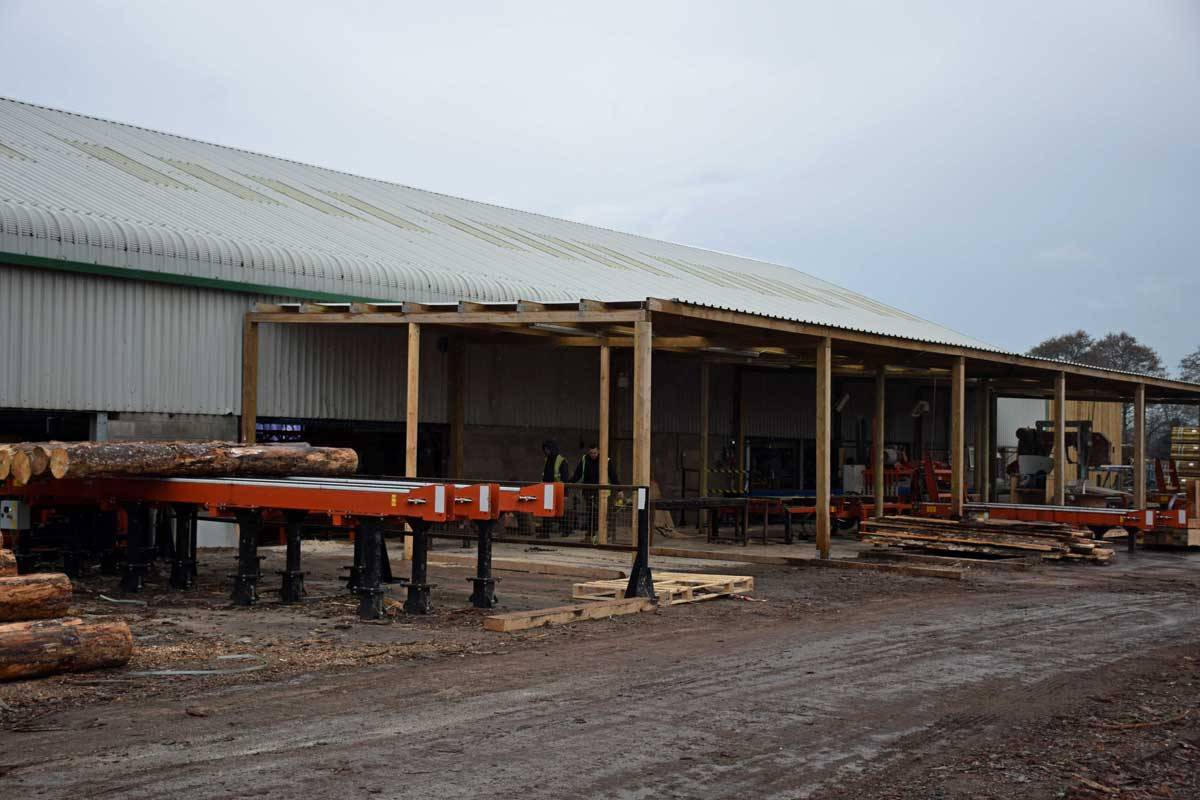Clifford Jones Timber are a fourth generation family-run business created by Clifford Jones in 1948. They are the largest fencing post manufacturer in the UK, supplying all of the British Isles from their two fencing mills in Ruthin, North Wales and Gretna, South West Scotland.
Having been in touch on social media with Richard Jones, the company’s chairman, I accepted his invitation to see for myself how they manufacture their quality fencing and landscaping materials.
In the early years, Clifford bought ex-military vehicles for dragging and lifting large hardwoods for delivery to sawmills in the Wrexham area. From the age of seven Alan, Clifford’s son, helped his father on weekends and holidays until he left school in 1962 and decided to join him on a full-time basis.
Alan’s son Richard followed the family tradition and joined the business in 1984. He was put to work in the forest felling the timber purchased by his grandfather, eventually obtaining his heavy goods licence and becoming able help with the timber haulage.
Alan became the managing director in 1987 and, with the purchase of a fencing mill in Ruthin, the company had the perfect opportunity to start processing the raw materials that they were already harvesting and hauling to a finished product they could market themselves. A good deal of money has been invested since to increase both quality and production at the mill. Sarah, Alan’s daughter, joined the company in 1995 after completing her business degree. She established a new IT system throughout the company and implemented a good practice system, Sarah is the Commercial Director.
As the business grew more quality home grown timber had to be sourced to keep up with the increasing orders; thus, in 2002 Penny Lloyd was employed to take sole charge of raw material purchases. Penny has been instrumental in securing and maintaining the prestigious FSC status that CJ Timber is immensely proud of.
2005 saw the purchase of the Hunter Wilson fencing mill in Gretna, which elevated CJ Timber to the largest fencing manufacturer in the UK.
Today, the fourth generation of the Jones family, Alan’s sons Josh, James and Alex, are plying their trade in the family business.
I’ve been aware of CJ Timber since early on in my forestry career. I initially started out working with the Forestry Commission (FC) in Beddgelert Forest in the late 1970’s, at which point the industry had four main hauliers/buyers: R.H.Roberts from Corwen, A Mirron from Llanrwst, Pontrillas Timber from Hereford and Clifford Jones from Wrexham.It was in the early 1980’s that I started to work independently with CJ Timber. I had left the FC and started contracting on my own with a Universal Tractor fitted with a Fransguard five-tonne three point linkage winch. I was contracted to Flintshire Woodlands carrying out a thinnings at the Wern Estate on the outskirts of Portmadoc in Gwynedd, and CJ Timber were hauling the timber to the various local sawmills. Two regular CJ Timber ERF crane trucks were employed and one was driven by Clifford’s son Alan.
I had also visited the fencing mill in Ruthin prior to its purchase by CJ Timber and remember it as a large shed selling pointed and peeled fencing posts/strainers which were manufactured outside as well as fencing materials such as netting, staples, etc. I had planted and fenced an area outside Ruthin for Flintshire Woodlands and had collected all the materials we needed from this fencing mill.
Nothing could have prepared me for how much the business had grown since my last visit and as we were walking towards the office the mill looked to be a hive of activity. We were met by Richard, who is immensely proud of the achievements of CJ Timber and the excellent reputation they have acquired due to the quality of the products they supply, and taken upstairs to his office and introduced to Penny Lloyd (now Managing Director of Clifford Jones Timber).
Penny and Richard explained the difficulties of maintaining a continuity of timber coming through their gates; although the order books are full, keeping enough of the correct size timber coming in is becoming challenging. They pointed out that they are becoming increasingly worried by the shortage of supplies of small roundwood, and the rising prices due to the Renewable Heat Incentives (RHI) are not helping their cause.
Given the spiralling prices of standing sales and the reduced quantity of available wood, they are having to undertake difficult and awkward harvesting jobs on standing sales contracts to try and stay ahead of their competitors. They are fortunate to be able to call on the services of harvesting contractor Mike Gillet, who has an excellent selection of harvesting equipment to cope with most challenging conditions found in the forest.
Businesses like Clifford Jones Timber are vital in rural communities due to the involvement of both those working in the mill and the people in the supply chain. They include the contractors harvesting the timber, hauliers, hydraulic hose manufacturers, mechanical engineers, fuel and oil suppliers, etc. who all benefit from businesses like CJ Timber.
When the timber arrives in the mill it is unloaded by the timber trucks and stacked according to their lengths in the yard. The sizes they are using are then placed onto the log sorting line before being separated into diameter classes. This speeds up the machine rounding process whilst reducing waste. Once peeled, rounded and pointed they are then placed in one of the three drying kilns to reduce the moisture content to the optimum levels.
The kilns are heated by a bio-mass boiler fuelled by woodchip. This is a by-product produced by the fencing mill which helps in maintaining the neutral carbon footprint they are always keen to promote within the company ethos. CJ Timber work in conjunction with Bangor University to explore and develop new and more efficient timber drying techniques.
Once the correct moisture content has been achieved the lengths of timber are placed in one of the two pressure treatment plants, where they are impregnated with a 5.5% solution of the next generation Tanalith E8000


with added BARamine technology all to user class 4 (UC4). This is currently the most effective process for protecting timber against fungal decay and insect attack. However, the company are not complacent as they constantly seek advice from experts involved in timber preservation so as to offer the best and most effective up to date solutions for their customers.
As we were walking around the mill I noticed some large diameter, beautifully finished, perfectly symmetrical, roundwood timber of different lengths banded together. The end grain was unusual and Richard explained that this was Eco Laminated wood. To achieve this beautifully engineered timber they use three pieces of planed, sawn redwood which are glued and pressed together. The resultant timber is then passed through a state of the art Radio Frequency Machine, which is a high frequency hot press that cures the glue quickly. The next process is to machine the timber into perfectly round columns in the timber moulder. The end product is perfect for use in constructing children’s playgrounds, gazebos and other garden structures, commercial buildings and bridges. Engineering the wood in this manner helps to prevent the timber from warping and splitting open (which can be hazardous traps for smaller fingers) in the extreme climate variations we experience throughout the UK. In square form as well as round, the engineered timber can be precisely drilled, scalloped, domed, routed and chamfered to the customer’s specifications prior to being pressure-treated and is offered with the platinum warranty, which guarantees the life of the timber. While the wood being used currently is imported Swedish redwood, CJ Timber are always looking to use more of their own locally sourced timber.
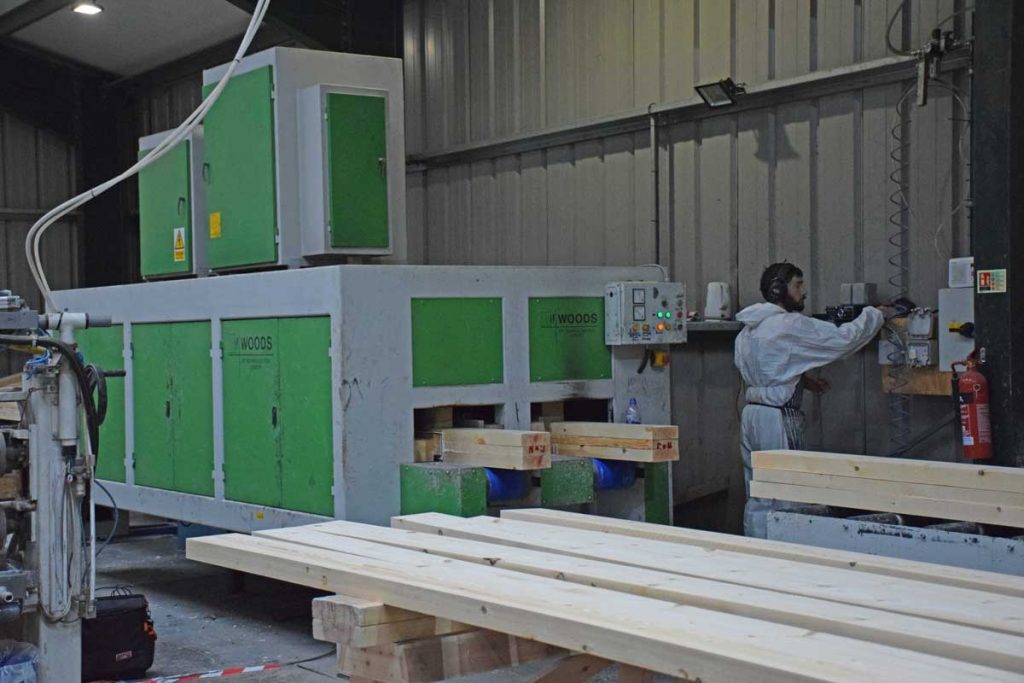

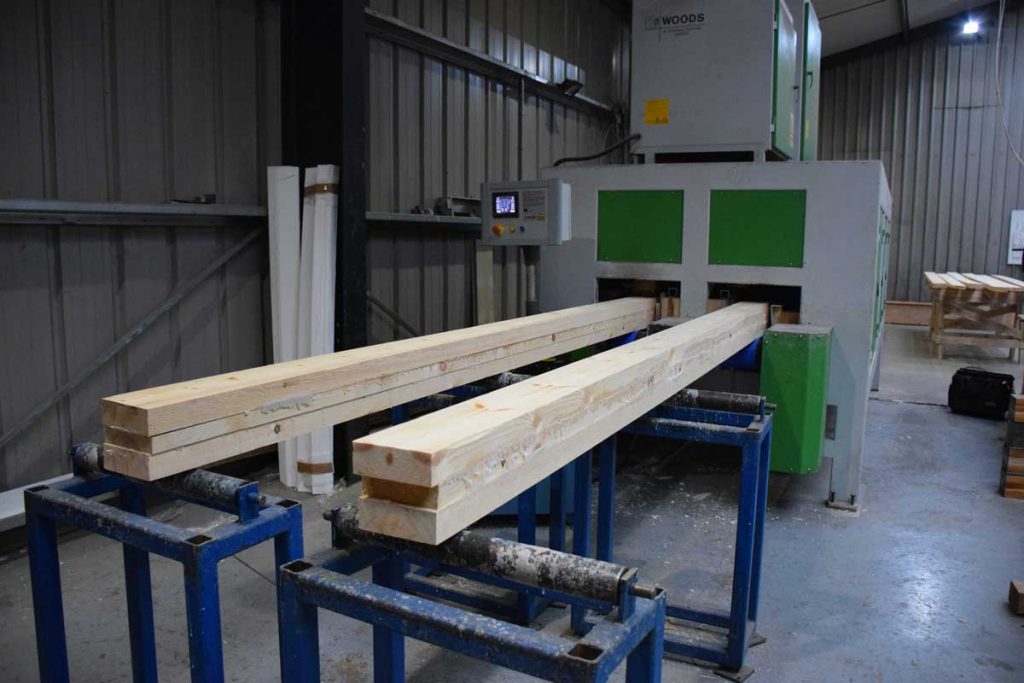

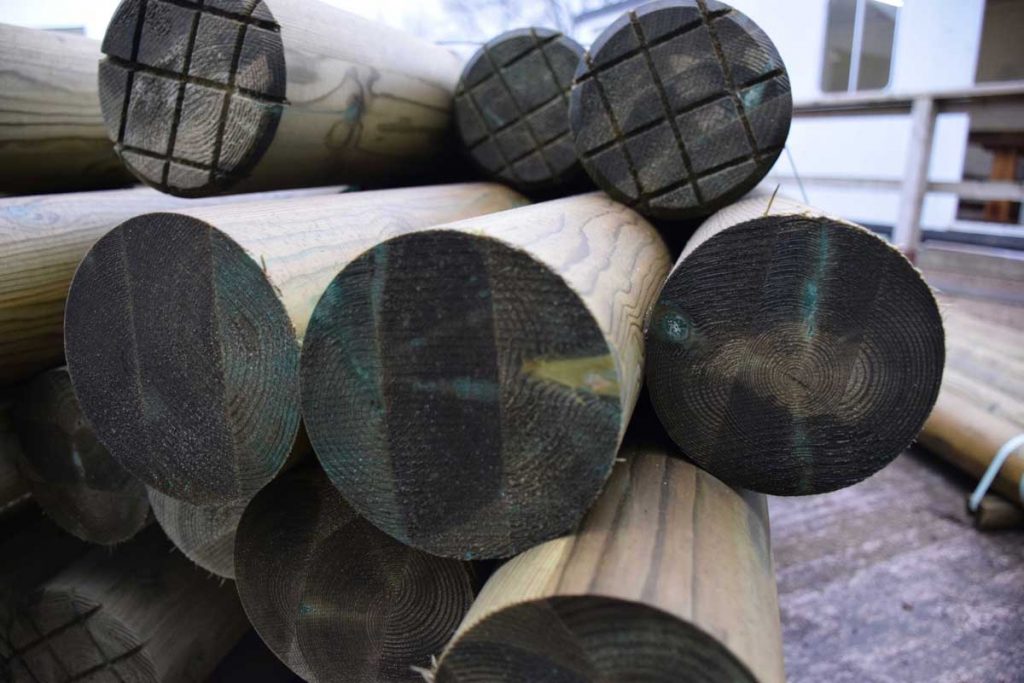

This is a well thought out, efficient and productive fencing mill capable of producing well over 10,000 posts on a daily basis.
All the bark and sawdust waste is sent to Blazers Fuel, which is right next door on the industrial estate; initially built by CJ Timber at a cost of £6 million, it opened in 2007 to manufacture wood pellets and briquettes for wood burning stoves and bio-mass boilers. It utilises sawdust, chipped wooden debris, bark and low grade co-products in its manufacturing process and does not take in any chip roundwood that could be used for other purposes. In 2016, CJ Timber sold the plant to two local entrepreneurs with a negotiated five-year partnership contract to supply the waste residue created by the mill.
What I found surprising was how clean and tidy all the workstations were -all the sawdust and waste from machining is extracted by overhead ducting and heaped outside, where it is loaded into to the never ending procession of articulated truck containers for delivery to Blazers.
The last area we visited was the sawmill itself, which has an excellently designed layout for maximum efficiency. The logs are loaded onto the log deck from outside the building and then fed inside ready for processing on the Wood-Mizer TVS log lines. Again all the waste residue created is caught and extracted by overhead ducting, leaving a clean, safe working environment.
The mill produces zero waste, they use every scrap of the 100,00 tonnes of timber that they annually process, even kiln dried fencing materials that don’t meet the company’s high standards is sawn, bagged and sold for firewood. Richard pointed out that over the years, CJ Timber has had to change strategy; they used to be an insular company, but with the difficulties in obtaining regular timber supplies they have to be more open and work together with others to benefit the industry as a whole. They are committed to protecting the environment and all timber is sourced within the UK and carry the FSC certification, which means it comes from sustainable forests.
This mill is an amazing achievement by the Jones family and their devoted employees and shows just what can be accomplished with commitment and hard work. From just two full-time and one part-time office employee in 1987, CJ Timber has increased steadily in size to over 50 employees. I got also the impression that, regardless of the size of an order placed by a customer, everyone would be treated with equal importance. In 2018 they deservedly won the award for the best family business in Wales.
They supply the whole of the UK with fencing posts and strainers, gates, sleepers, Eco Laminated timber and landscaping timber from the two fencing mills in Ruthin and Gretna.
I thoroughly enjoyed my visit both Richard and Penny were very open and extremely honest about what the future holds for the timber industry in Wales with the uncertainty over the potential effects of Brexit not helping. It certainly gave me an insight into some of the increasing difficulties facing everyone directly and indirectly involved in the Welsh timber industry.
Please contact Penny at penny.lloyd@cjtimber.com or telephone 01824702157 if you have standing or round timber for sale.
Forest Machine Magazine is written and edited by a forest professional with over 40 years hands on experience. We are dedicated to keeping you informed with all the latest news, views and reviews from our industry.
To support us you can subscribe to our bi-monthly magazine which is delivered to your door from only £30 per year.
Subscribe here
